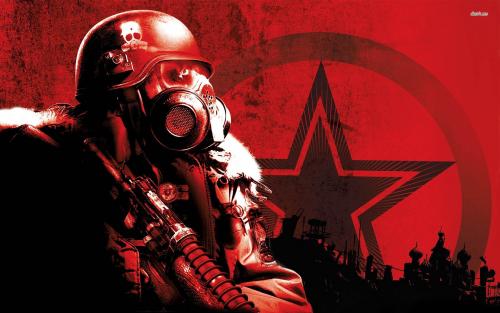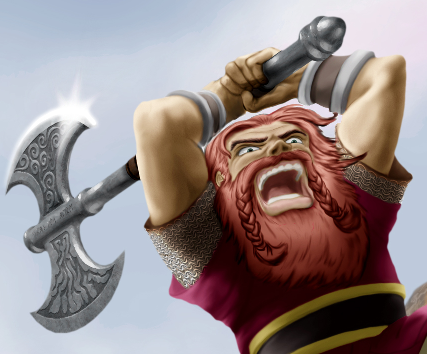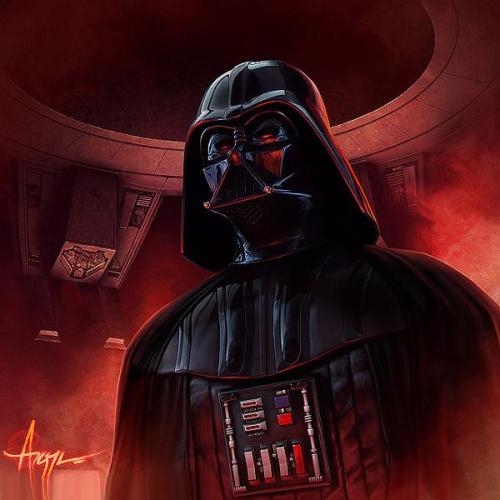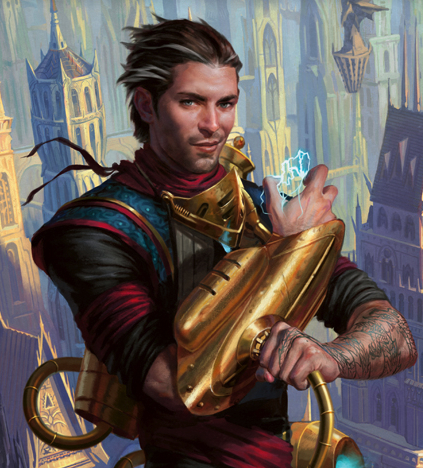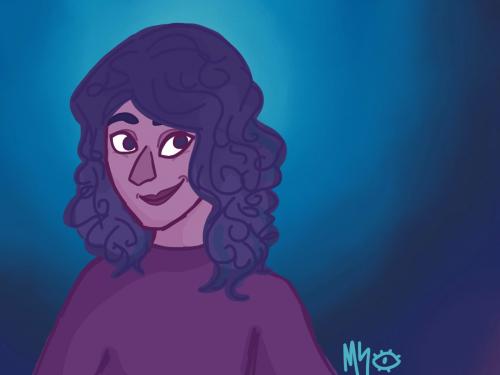
The LA Writers Guild
#1

Posted 30 November 2010 - 09:52 PM
Well, as evidenced by one of the newer threads in the Commons, we do have at least a few writers on the board! Writers who want to break into the industry, writers who do fanfics, the dedicated RPers, or people who just write as a hobby. Writing can be a lonely activity for obvious reasons. It's you crouched over a keyboard by yourself for several hours. Unless you belong to some kind of writer group, you don't get much of a chance to talk about it. Because the usual reaction from laypersons when you say you're a writer is:
"Oh, you're a writer! What have you published?"
"....Well, nothing just yet."
"Oh. Well, I guess you can always marry someone rich."
I've gotten that before, at least.
So this is a thread like the Single's Club or whatnot. But not for whining about romance. Unless you write whiny romance. And if you do, pick a new genre. It's where the writers of LA can come together to discuss the insane hobby we share.
What do you write? Novels, fanfics, RPs, vidjamagame scripts?
What genre do you prefer? Sci-fi, fantasy, horror?
What are some of your favorite stories?
Any writing pet peeves? What type of stuff annoys you when you're reading?
And what do you prefer instead?
Tips and tricks of the trade?
(Oh, and to save him time on advertising, go buy Steve's book. Or do cover art for it.)
#2

Posted 30 November 2010 - 10:04 PM
Also, I'm attempting to write a fanfic set in LotR. I got about 2 chapters in, then BAM. College.
Oh, and I think I should say, my fanfic has (almost) none of the main characters in it, and those that are more of background characters. None of this "OMG I SAVED HELM'S DEEP AND MINAS TIRITH AND LORIEN AND MIRKWOOD AND EREBOR AND DALE AND RIVENDELL AND ETC" crap either.
Edited by Elvenlord, 30 November 2010 - 10:06 PM.
#3

Posted 30 November 2010 - 10:26 PM
What do you write? Novels, fanfics, RPs, vidjamagame scripts?
I've written one novel, and started another. It's about 2/3 done, thanks for asking. I also do the occasional short story.
What genre do you prefer? Sci-fi, fantasy, horror?
I'm almost pure fantasy.
What are some of your favorite stories?
I enjoy just about anything by Terry Pratchett. David Edding's The Belgariad was one of my favorites, and I read a lot of his other stuff, but I feel like his quality declined pretty sharply over time. George R.R. Martin's A Song of Ice and Fire is awesome, he just needs to finish book 5 already.
Quite possibly the best book I've ever read is The Picture of Dorian Grey by Oscar Wilde. It's a shame that he wrote mostly plays, because I hate reading scripts. Phenomenal writer, though.
Any writing pet peeves? What type of stuff annoys you when you're reading? And what do you prefer instead?
Things that annoy me:
1) The attitude that Art needs to be incomprehensible. I subscribe to the idea that writing is a form of communication. If you're leaving the reader with the power to decide what exactly the details of your plot are, then you have failed to communicate. I much prefer writers that stimulate conversation about what the book was about, not what happened.
2) Plucky farmboys saving the world from evil overlords. It's been done, and done well. Time to let that trope die. This one got so bad that I had to write my own book to escape. Since then, I've discovered authors more to my taste. If I had found Martin and Pratchett five years ago, I probably never would have felt the need to write my own book.
3) Ralated to the above, shallow villains. No one wakes up one morningand thinks "How can I prove how evil I am today?" Not many people think of themselves as evil. They might think of everyone else as evil, and deserving of punishment. They might think of themselves as inherently superior to other people,and thus have a right to dominate. But authors need to say that. Villains often drive the plot, so I strongly feel that they need to have interesting, rational, clear motives. They also shouldn't commit random atrocities just to make sure the reader will hate them.
4) There's more. I hate everything. No point in listing it all.
Tips and tricks of the trade?
Find someone who you can trust to tell the truth, and make them read your stuff. Get feedback. Listen to the feedback, even if you disagree with it at first. Half of writing is telling a story you want to tell. The other half is telling a story that other people want to hear. It all comes down to writing being a method of communication. If someone didn't understand your totally sweet metaphor, or have to ask what a character's motive is, then you've made a mistake somewhere. Learning to gracefully accept and reflect upon criticism is the only way to improve.
The other part to that is that if you have someone reading your stuff, then you have more motivation to actually write. For me, personally, I fall into despair and stop writing if it's just going to sit on a thumb drive until the day I die. If just one person is reading it, I find myself far more likely to care. My Motivation Buddy got me through writing my first novel, and he's doing the same thing on the second.
#4

Posted 30 November 2010 - 10:56 PM
I also have several different stories thought up in my head, but I lack the motivation to actually sit down and type them up. I plan to... eventually...
#5

Posted 30 November 2010 - 11:45 PM
In any case, there's almost a 90% chance I'll be published in the Spring 2011 Mountain Laurels (My college's periodical of student art and literature. They practically reject nothing, so being published there means just that; nothing. But it's a start.) The short story is already written (well, drafted, anyways.) I've also got two novels in pre-writing stages. A sci-fi action- adventure...which is on indefinite suspension until I can figure out what the crap I want to do with it, and a VERY introspective fantasy work that derives a lot of precursor thought from Trinity Blood and Claymore.
Yeah. Originality's been one of my big concerns. The short story was originally a Final Fantasy VIII fanfiction between myself and the Quistis (Hey, I can dream, can't I?) that kind of bloomed off into an origins story for how Seifer turned bad. Not to derail the thread, but beta-reading would be appreciated :wink: but as that this is for publication (i.e. I can't legally put it in public domain and post it on the forums) it'll have to stay in PMs.
What do you write? Novels, fanfics, RPs, vidjamagame scripts?
Whatever inspiration strikes for. In the past that's been short stories and a couple of fanfics which reached deep into the novella length, but I eventually want to write novels.
What genre do you prefer? Sci-fi, fantasy, horror?
I am VERY eclectic. If forced to choose, I'd pick apocalypse sci-fi because when it's good, it's REALLY good (The Road and Alas Babylon). Too bad it can also be REALLY BAD, to (Water World). But I read and write just about everything.
What are some of your favorite stories?
Memento. I seem to be one of the few who got this movie first time through. The Road is great, as is The Lord of the Rings and World War Z is an occasional guilty pleasure.
Any writing pet peeves? What type of stuff annoys you when you're reading?
Wasted words and excessively long paragraphs. I tend to read just the first and last sentences of large paragraphs because, to be honest, there's usually little need for the words in between to get the story.
And what do you prefer instead?
Subtlety. Pulling off subtlety correctly is incredibly hard, but having a story which grows on you in symbolism and metaphor each time you read it is one of the most beautiful feelings in the world.
Tips and tricks of the trade?
Proper Pre-writing Prevents Poor Presentation. Getting fiction out of your head is a lot like making wine; you can get grape juice immediately, but if you want to make a fine wine you have to be selective about your grapes and mull over things for a bit. I mulled over my last short story for three months....although I guess that mulling WAS a bit filled with fantasies of a hot teacher in leather.
#6

Posted 30 November 2010 - 11:54 PM
What do you write? Novels, fanfics, RPs, vidjamagame scripts?
I write short stories, novels, actively participate in RPs around here, and once dabbled in fanfics. I have three short stories essentially done. I have one novel ready to be started at any time, and another novel idea in the brainstorm stage. My fanfic days are over and thankfully long gone, but they were important in terms of getting some practice. Not anything I'd want to bring back up. They were mostly set long before or way after their basis - ways to shape the world by inventing backstory or adding deeper layers of story.
What genre do you prefer? Sci-fi, fantasy, horror?
Sci-fi. Less the technobabble lasers and robots everywhere kind, and more the future of society kind. I have a very small soft spot for historical fiction, but only for the barely-known eras of the world.
What are some of your favorite stories?
Ender's Game is probably my favorite contemporary novel. Mythology has always been a favorite of mine - specifically Sumerian and Norse. It's where this whole 'writing' business got started, after all. You know, apart from mundane record keeping.
Any writing pet peeves? What type of stuff annoys you when you're reading?
I have quite a few of them - I'm a picky reader.
1. Serious Business Writing. Writing without humor. There are holocaust survivors who made light of their situation while they were stuck in death camps, so there's no reason for handsome brooding heroes to brood that damn much all the time. Because it's usually over nothing major. Batman only gets away with it because his villains are so amusing. It's also not more artistic to have a humorless piece of work. To laugh is to be human. We laugh when we're nervous. We crack jokes to ease the tension. A world (in fantasy or reality) without laughter is not one I want to stay in. A character - especially a main character - that is extremely stoic doesn't have much of a character at all. Not one that I want to pay attention to, anyway.
1B. Your funnies have to actually be funny, though. Humor can sometimes be harder than straight drama.
2. Info-dumping. If it starts sounding like a textbook entry, then I'm going to be put off. Which has nothing to do with ADD. It eats up time and there are better ways to incorporate backstory than to vomit it all up in a huge section of text that disrupts the flow of things. Also annoying if characters have to explain things that everyone should already know in their world. "Hey, remember when that guy enslaved the whole country a few years ago?" "Yeah, wild times, man."
3. Preaching. Authors who very bluntly insert their own moral values or ideologies into characters. A reaction of "Well, that tangent was unexpected and out of place," usually signals that a preacher moment has happened. Worse if it happens in the narration itself. I like storytellers, not preachers. It should not read like an Aesop fable. Focus on the story aspect, not getting a message across. There are many messages to be taken away from just one action - let me choose which one it is. Preaching appeals to only one group of readers - the ones that share the author's opinion - and turns off everyone else. Which is going to be the majority of people when it comes to most controversial issues.
4. Agreed about the plucky farmboy saving the world. Along with any innocent bystander getting caught up in the action. And heroes who set off into the world after their villages are horribly burned down by wandering bandits/generic badguys at the start of the story. Or after their parents are unexpectedly murdered by the same type of generic badguys. Basically, I like my heroes to be motivated from the start. Not people who go "oh, my barn burned down, time to go fight evil and get revenge on the dark overlord." Especially if they have many layers of motives. Generally just don't like the innocent boyscout heroes.
5. Characters without realistic weaknesses / characters who have over the top skills. It's not interesting to read about invincible people. It's the weaknesses, and learning to work around them, that make for an interesting person. Not the strengths. Even big tuff guys have some degree of vulnerability.
And what do you prefer instead? / Tips and tricks of the trade?
My favorite stories always have a great blend of angst/humor/suspense. Getting this balance right can be extremely tricky, but once you have it down, it's gold. I think the best compliment I ever got was that I made someone cry and laugh at the same time. Which is not to say I've mastered this balance out at all. You've got to work on it.
Info-dumping was something I used to do because I thought it was inevitable. It's what you as an author want to do. I mean, why else did you create all these damn notes? It takes great willpower to resist the urge to info-dump, and it requires more skill to flesh out a world without it. You have to think of it from a reader's perspective. The reader is essentially like someone who's been beamed directly into the story - that's why "kid is literally sucked into a fantasy land" tales are so popular. The readers learns about the world from actions and spoken words. They're being taken along on the ride. Info-dumping disrupts the natural flow of things. A lot of people skip over big blocks of informative text into order to get back to the dialogue and action. That's where they feel most connected.
Multi-layered characters. A literary agent talked about this once (Nathan Bransford if you're interested in Googling him - he has a nice blog, but I haven't checked it in a while). Characters with conflicting interests and ulterior motives. He used this example (quoted from his blog):
Here's a way of illustrating that, Super Mario Bros. style.
Good: plumber wants to save the princess.
Better: plumber wants to save the princess while besting green-clad brother with similar goal
Best: plumber wants to save the princess while besting green-clad brother with similar goal, but although he is brave he is plagued by the creeping sense that the gamer controlling his every move might want him dead
And.... yeah. It's late, and I've lost my train of thought! But that's a good starting point.
Also, feel free to post up short stories and/or offer critiques to any that are put up! I might show off one soon, but we'll see.
#7

Posted 01 December 2010 - 10:58 AM
I write poetry. I've got a few not very good short stories stashed away, but these days, when I write to write, it's usually a poem. I've been published in a few obscure journals and no-name regional magazines. Most I've ever gotten paid is $75 for one publication of one piece. Usually it's more like $25. But it sure is fun to write.
What genre do you prefer? Sci-fi, fantasy, horror?
I'm an Imagist. It's weird to label yourself, but I've read my work and that's what I am. And I like to play with sounds and mouthfeel. I like poems that are fun to say out loud.
My short stories always were of the Ray Bradbury school; there may be science fiction elements or magic, but the story is about humans.
What are some of your favorite stories?
Hm. I grew up with Sherlock Holmes and Huckleberry Finn. I love the stories in the Pogo comic strip by Walt Kelly, and Bone by Jeff Smith. The Flashman Papers novels by George MacDonald Fraser gets my vote for the best historical fiction ever written. I have a soft spot for historical fiction. My favorite writer is Shirley Jackson - seek her out, the woman never published a bad sentence, seriously. My favorite work of hers is the novel We Have Always Lived In The Castle.
It's easier to list favorite poets than favorite poems. I love Wallace Stevens and William Carlos Williams; I like Frost's craft better than his pieces, but they're still great; I love Richard Brautigan's poems and Kobayashi Issa's haiku; Theodore Roethke and e.e. cummings always make me smile.
Any writing pet peeves? What type of stuff annoys you when you're reading?
My writing pet peeves are best explained by reading The Elements of Style, Strunk and White, et al. It is the only book you need. Master its teachings and you will write beautiful, easy prose and sharp, concise prosody.
Specific peeves:
1. The Hero Myth. This is that plucky farmboy stuff previously mentioned by several of you. Joseph Campbell was great for a while, but it's time to put the Hero Myth to bed. The idea that there's this guy who is born with greatness in him and destiny will pick him out and he will rise to great power and heroism on the shoulders of his long-suffering friends (who were not born with as much greatness in them) is not only a gross misreading of the human condition, it's detrimental to our culture to have that ingrained in every story we tell.
2. Word Vomit. I'm looking at you, Stephen King. Do they pay you by the syllable now, or what?
3. Pseudo. Don't be lazy or generic. I hate stock characters and stock phrases and stock accents. If you want your character to speak in Middle English for some reason, fucking learn Middle English. I don't go for that pseudo-archaic pseudo-Elizabethan pseudo-intelligent mushspeak. Use the language of the here and now, and the words of the characters, wherever the here and now may be and whoever the characters may be. A character is more than a speech impediment or an accent or an Italian.
And what do you prefer instead? / Tips and tricks of the trade?
The aforementioned style manual. Read more than you write. Write something, anything, every day. Work in forms, work against forms. Play. Submit things. Show, don't tell. Practice your craft. Learn about what you're doing. Research. Take your most commonly used style and genre of work, and don't write anything in that style or genre for a year.
Play.
#8

Posted 02 December 2010 - 10:44 PM
This is called "The Healing Power of Delinquency." It's mostly something I did for shits and giggles.
It's not edited up, so expect the occasional small error. The copy/pasting from my document has ruined some of the formatting, but should still be readable.
Comments welcome!
This is my feeble effort to actually start sharing what I write.
#9

Posted 02 December 2010 - 11:13 PM
And something about this forum skin makes reading large blocks of text annoying to me. I had to copy it into Word.
Well done, though. I enjoyed it.
#10

Posted 03 December 2010 - 01:16 PM
WARNING: what follows is, quite possibly, full-blown diarrhea of the mouth.
#11

Posted 03 December 2010 - 11:58 PM
http://forums.legend...etective-story/
#12

Posted 05 December 2010 - 11:05 AM
EDIT: I've now included that additional stuff....
Edited by Egann, 05 December 2010 - 07:45 PM.
#13

Posted 05 December 2010 - 11:46 PM
Anyway, that's what I was trying to do. It apparently didn't come through. I'll have to do some rewriting.
Edited by SteveT, 05 December 2010 - 11:47 PM.
#14

Posted 06 December 2010 - 01:41 PM
#15

Posted 06 December 2010 - 07:28 PM
I made some changes (highlighted) and uploaded a new version. Let me know if that helps. I didn't touch the jokes. That's trickier, and I'm not sure I entirely agree with you. It'll take some thought.
Uploaded to the original thead. I think we should move the conversation there.
Edited by SteveT, 06 December 2010 - 07:28 PM.
#16

Posted 06 December 2010 - 07:50 PM
But it's humor, and humor is lighter, quicker, and less involved than standard drama. Written humor is all about wit - either in the dialogue or exposition - and general silliness. That doesn't mean it's geared toward a middle school audience, just that it can be read by someone who's in middle school if they wanted to pick it up. There are probably a great many adult novels that fall into that category as well, especially in the humor category.
That's not me being overly defensive of the story, since the two of you are right in that there are sections where there's work to be done, just that it seems nonsensical to number crunch like that.
Although perhaps that'd be a bit fitting anyway, since the story is about otherwise intelligent people essentially reverting to juvenile mentalities in the face of nothing to do. ...It happens to me at work. I become fascinated by bubble wrap and throwing super balls at the wall in a confined space. I think most everyone can identify with that.
#17

Posted 06 December 2010 - 08:24 PM
It's useful for making sure it's appropriate for your target audience, but that's about it.
#18

Posted 07 December 2010 - 12:31 PM
I write short shories and I also RolePlay from time to time (as evidently seen in Chronicles) along with poetry from time to time.
What genre do you prefer? Sci-fi, fantasy, horror?
I do enjoy myself a good fantasy story, though for more "academic" purposes I write from a more modern and realistic perspective, mostly slice of life stuff.
What are some of your favorite stories?
I like Mark Cox's poetry, along with Jared Paul and a couple others. As for stories, I enjoyed Dante's Inferno and The Outsiders but I wouldn't call them favorites.
Any writing pet peeves? What type of stuff annoys you when you're reading?
If I see stuff in writing in a story that I feel belongs in a JRPG or something thats overly romantic/dramatic, I tend to just stop right there.
And what do you prefer instead?
Stories that are interesting and don't bore the snot out of me.
Tips and tricks of the trade?
Write about what you like for fun, that way you don't lose your passion for it the way some people do when they write for work.
#19

Posted 07 December 2010 - 02:33 PM
Online readability test? I dunno, I don't much trust something like that. Estimating the worth/audience of a story based on mere number crunching doesn't seem like the way to go.
Bear in mind that I only mentioned it because I thought of the work as very close to final draft and at that point, you need to be aware of your language and style, even if you decide to over-ride it. Like SteveT said, it's only a way of fine-tuning the work to an audience. Granted, such a huge info dump makes it LOOK like I think it's more important than that because it soaks up so much of my post.
Looking back, I might've been wrong, anyways. You've got quite a few dialogue sections -more than I thought when I ran the test, anyways- and that naturally pulls down the Gunning Fog Index. (Not just is dialogue more informal, but it also needs tagging lines like "he said," etc. when you put it into prose. That was one of the reasons I didn't apply it to SteveT's work; it has enough dialogue I felt the results would've been skewed and not really meaningful.)
#20

Posted 10 December 2010 - 11:25 PM
Summary: A scientist testing out new interrogation technology in Korean War Part II suffers a slight malfunction.
There was a different (well, extended) ending scene, but I chopped it off for dramatic effect. It originally ended somewhat stereotypically and I didn't like it much. Endings can be just as difficult as beginnings for me. Not sure why.
#21

Posted 12 December 2010 - 11:18 PM
Oh, and by the way, big thank you for the formatting. Perfect if not for a glitch with the double-spacing.
The good news is that I see potential in this story. A LOT of potential. To give you an idea of how much, the last work you posted had a moderately good idea which you explored about as far as it could (or should) be; about 90% to just throw a figure on it. Here, the story appears worse from a mechanical perspective, but it's actually because we're only seeing about 15-20% of what the idea is capable of. IF you put another 90% exploration out, I could totally see this about 150 years from now sitting in an anthology next to Bradbury's "A Sound of Thunder." I wish I could say that was flattery.
The bad is that it will be VERY difficult to develop it. Of course.
First off, this story has to be a character-driven story; there's no alternative by design. Don't get me wrong; there's character here, but it's inconsistent. It actually reminds me a lot of Michael Chriton's Prey, where he spent the first 104 pages totally devoted to character development, and then proceeds to not use one bit of it or develop any character for the rest of the book...except for one stereotypical geek T-shirt. It feels...jerky. Second, you could take a bit of your own medicine and not tell us everything about the EEG implant. Just the situation, a casual mention to it being a device, and a few subtle hints that they're civilians and not some DOD freak-project and that's enough, at least until the narrator meets the Chinaman. What you do need is an explanation for the narrator's actions.
Personally, I'd take this story back to the pre-writing phase. The narrator has a VERY forgettable personality and that really shows when the narration is as intimate as it is (The last story could get away with a non-intimate first person narration, but this story's content and nature necessitates an intimate narration, regardless of person.) With this draft in hand, pre-write the narrator's relationship with Mark and the car wreck when she was younger. Chances are, you can use one or the other (or both) in flashbacks to explain the character in the events of the present. Imagine scenes between the narrator and Mark. Imagine the car wreck. Actively look for or introduce parallels to the present action in them and make what happened then mirror what is happening now.
I don't know. It's late and I'm having problems thinking cogently, so this is probably coming out like an inane blathering even though I've spent two days thinking this over. I think that the problem is that you instinctively understand and write the idea, milieu, or event story and write those well, but you don't get characterization quite as well, and it shows when an idea (like this one) needs good characterization to pull off. Maybe this is all projection --I resemble this problem very much-- but I think that your serious writing will always feel flat because the characters aren't capable of surprising us; they are not like an ogre, they have no layers.
....When I looked back at all my hand had accomplished. Meaningless. Meaningless. Nothing was intelligible under the sun. If you understand well enough, ask a question or two. If not...I'll try to re-think this into...I don't know. Something cogent.
#22

Posted 13 December 2010 - 06:57 PM
* Human significance
* Social significance
* Aesthetic significance
* Entertainment values
* Critics questions:
o What was the Artist trying to do?
o How well has he or she done it?
o Was it worth doing?
Roger Ebert established himself as a prominent reviewer largely due to his strict adherence to answering the three Critic's Questions.
Anyway, I read that story. I am, however, about as far away from the target audience as you can get (about as far as, say, Planet Vulcan), so I'm not going to go into a detailed review. It wouldn't be fair. If I were to do so, my main complaint would be the pacing.
However, I am PMing Selena a track changes version of the doc with some stylistic comments.
#23

Posted 14 December 2010 - 12:43 PM
This question is (loosly) directed at Lena: she listed it as a specific pet peeve, so she might be in a better position to give an answer, but really I'm looking for anyone with an idea.
In the pre-writing for my novel I've been having problems designing the difference between the protagonist's and antagonist's attitudes. For universe-related reasons, the best difference I can think of would center around how they deal with or react to power, and about a week ago I got an idea; the antagonist thinks of power as a means of dominating others, while the protagonist thinks of it as a means to help others. At this point, two warning flags popped up.
1. This is awful close to cliche material.
2. It will be difficult to pull this off without being preachy.
Now, after some thought I'm not terribly concerned about the cliche part, but the more I think about it, the more difficult it becomes to avoid preachyness. Suggestions and/ or general techniques would be helpful on either part.
#24

Posted 14 December 2010 - 11:06 PM
#25

Posted 14 December 2010 - 11:46 PM
2. It will be difficult to pull this off without being preachy.
Now, after some thought I'm not terribly concerned about the cliche part, but the more I think about it, the more difficult it becomes to avoid preachyness. Suggestions and/ or general techniques would be helpful on either part.
One piece of advice that leaps immediately to mind is something I saw attributed to Orson Scott Card. He said that whatever your story is about you should avoid using that word directly. So if you're writing a story about racism don't use the word racism, for example. Not sure how applicable that is to your problem, but I guess the broader lesson is to try to explain things subtextually as much as you can. Put your characters is a lot of situations where they have power over people so the readers figure out for themselves the difference between their philosophies. Maybe have a couple of scenes where each character must confront a similar situation to really contrast the two. Bonus points if the narration of the second scene repeats a few words or phrases from the first scene to highlight the fact that the scenes are parallel.
Edited by Finbarr, 14 December 2010 - 11:46 PM.
#26

Posted 15 December 2010 - 01:11 AM
the antagonist thinks of power as a means of dominating others, while the protagonist thinks of it as a means to help others
This is commonly done, and if you want to keep it that simplistic and have it work out, then you'll have to do it very well.
Power and the concept of good and evil are more complex than just that, so you have more to work with. You can 'dominate' others for good causes - average people are not too terribly intelligent and can easily steer themselves toward doom if they aren't kept on a good path by a strong leader with power. People traditionally follow strong, powerful rulers. Not kind boy scouts. Churchill. Charlemagne. Alexander. Alfred the Great. The greatest leaders in the history of humanity have made full use of their power - dominating their people for the sake of prosperity. But you run the risk of turning into a corrupt tyrant that is utterly afraid of losing that power once acquired.
Likewise, consistently helping other people will eventually make them grow dependent on such a hero, resulting in the decay of the collective strength of the society. Your good intentions ultimately cause harm. And, as mentioned above, real people do not tend to be as drawn to selfless, helpful figures. Those sort of people get martyred - I'm sure you're familiar with the most popular example. Someone who is only willing to use their power to help when it's immediately necessary will not command the same sort of respect. He will not hold as much authority with people, so his early vocal warnings will be more likely to go unheard.
You'd have to address:
Why the villain focuses solely on domination. Is he just a misanthrope that wants people to die in a fire?
Why the hero wishes to stop at merely helping others.
Again, not knowing anything about the novel makes this hard to answer.
#27

Posted 15 December 2010 - 01:56 AM
#28

Posted 15 December 2010 - 10:03 AM
I'm still in the early pre-writing phase (as you've probably guessed). I've got a great opening subplot planned out, but where I should go from there I really don't know yet. One of the few things I HAVE figured out, however, is that the protagonist and antagonist are identical twins who were separated when they were young (shamelessly lifting from Trinity Blood.)
*Sigh* Outlined universe and opening subplot, and then brick wall when it came to starting the first subplot of the main action. That's exactly how my last draft died, you know. This is pattern I do not like.
@ JRP: *shrug* What I did for my last short story was pre-write another fanfiction, then change the names, places and the genre from commercial fantasy to contemporary literary fiction. To say a lot changes when you go from commercial to literary is an understatement. Personally, I think that it worked REALLY well even if the draft still needs quite a bit of redrafting and ironing; it easily made the roundest and deepest characters I've ever written.
Edited by Egann, 15 December 2010 - 10:05 AM.
#29

Posted 15 December 2010 - 09:38 PM
A story should be long enough for the plot, and no longer.
Edited by SteveT, 15 December 2010 - 09:38 PM.
#30

Posted 16 December 2010 - 01:08 PM
It's kind of hard to describe, but it's kind of like as soon as I get an idea for a universe and cast, an opening gambit immediately pops into mind, but then after that it's sort of "....well, where do I go from here?" I hate to admit it, but it's not like I'm stretching an idea so much as there wasn't ever a good idea in the first place.



